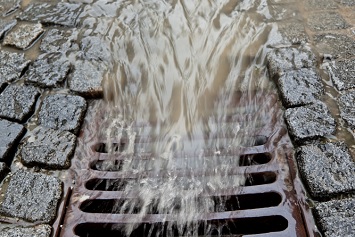As of January 1, 2020, certain industrial facilities in California must provide the cities or counties in which they are located with proof that they are enrolled in the National Pollutant Discharge Elimination System (NPDES) governing stormwater discharges before they can obtain or renew a business license. The cities/counties must then confirm on the business license that the businesses have the required NPDES permit coverage.

California’s NPDES program, which is implemented and enforced by the state Water Resources Control Board and Regional Water Boards, includes a No Exposure Certification or a certified Notice of Non-Applicability; these also serve as NPDES permits. The linked business and city/county requirements are contained in Senate Bill (SB) 205, which was signed into law by Governor Gavin Newsom on October 2, 2019.
SB 205
Under the NPDES program, both industrial facilities and cities are required to take actions to limit the entry of pollutants into stormwater runoff or to block polluted runoff from entering jurisdictional water bodies. When businesses do not control the level of pollutants in stormwater discharge, it ultimately falls upon local governments to control the discharges. If a local government is found to be out of compliance with its stormwater discharge permit, it may be required to implement additional monitoring or compliance actions or be held legally liable for improper stormwater discharge.
SB 205 applies to what the state calls the Industrial General Permit (IGP). In contrast to an NPDES individual permit that applies to a single facility, the IGP is a single permit under which many facilities can obtain legal coverage.
In discussing the need for the bill, the California Senate found that while the existing law required each eligible business to have IGP coverage, many businesses had not filed for such coverage with the state Water Board. For example, before passage of SB 205, the California Coastkeeper Alliance estimated that in Los Angeles, as many as 6,000 industrial facilities were required to comply with the IGP but had not done so.
Business Requirements
SB 205 affects nine categories of facilities:
- Feedlots of a specific size
- Manufacturing facilities
- Oil and gas/mining facilities
- Hazardous waste treatment, storage, or disposal facilities
- Landfills, land application sites, and open dumps
- Recycling facilities
- Steam electric power generating facilities
- Transportation facilities
- Sewage or wastewater treatment works
These facilities are subject to the law only if they meet the definitions for those categories provided in the Standard Industrial Classification (SIC) codes.
A business with stormwater discharges from regulated industrial activities that is applying for a business license must obtain coverage under the IGP and provide the city or county with documentation of a Notice of Intent coverage, a No Exposure Certification coverage, or a certified Notice of Non-Applicability from the state Water Board.
If a city does not issue business licenses, the business may still be required to enroll in the IGP program based on its SIC code. Businesses should contact the state Water Board to be certain about their obligations.
City and County Requirements
SB 205 requires cities and counties to confirm that a licensed business has NPDES permit coverage for industrial storm water discharges. As noted, NPDES permit registration for an industrial business can be a Notice of Intent, a No Exposure Certification, or a certified Notice of Non-Applicability. A city or county must require the license applicant to provide the name(s) and location(s) of all businesses; all corresponding primary SIC codes; and one of the three types of permits with an identification number issued by the Water Board.
SB 205 requires that the city or county only ensure that industrial businesses have IGP coverage when approving a business license. The city or county is not required to inspect facilities to ensure compliance with stormwater rules and permit requirements or help a facility get a stormwater permit. Businesses that contact the city or county about their stormwater permitting requirements can expect to be directed to the state Water Board.
Industry Support and Opposition
In its analysis of SB 205, the state Senate reported that the legislation was supported by many environmental and conservation groups, as well as several industrial organizations, including the California Auto Dismantlers Association, Institute of Scrap Recycling Industries, and California Metals Coalition. The California Construction and Industrial Materials Association opposed the bill.
